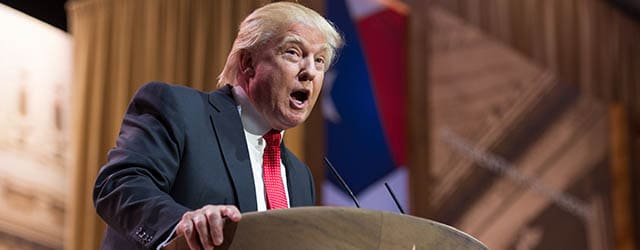In the United States, a real estate developer turned politician is stealing the thunder of many more-seasoned statesmen.

Defying criticism of his controversial immigration policies (building a wall to keep out Mexicans), his remarks about women (insulting a female news anchor for aggressive questions), and even his hair, Donald Trump, 69, leads in the polls among Republican presidential hopefuls. Pundits doubt that Trump, a populist by US political standards, can really make it to the White House in the November 2016 elections. A large and fragmented Republican field of candidates—not to mention the interminable length of the pre-primary season—make these early polls of little value in predicting who will ultimately become the nominee. Many remember other candidates, such as Michele Bachmann, in a similar position four years ago, who faded.
The billionaire son of a real estate developer, Trump wears many hats: tycoon, manager, author (The Art of the Deal) and television star (The Apprentice).
Faring less well among the horde of Republican candidates is another business luminary. Carly Fiorina, 61, was the first woman to lead a Fortune top-20 company, as CEO of Hewlett-Packard. She’s quite different from Trump and trailing him in the polls. But their dueling candidacies raise the question of whether strong business leaders also make good politicians.
Some of the skill sets overlap. “Things like judgment and decision-making, good communication, interpersonal ability to understand others and empathize with them, some objectivity understanding yourself and how people react to you, those are the skills that are important for executives and would apply to the political world,” says Manuel London, dean of the College of Business at Stony Brook University in New York.
But he notes that the world of politics is demanding and complicated—even for a manager versed in multi-tasking, organizing, taking charge, setting goals and pursuing an overall objective.
“Politicians are in the nitty-gritty. They have to respond to all sort of questions from the constituency, and that is really different from sitting up in an ivory tower as a manager or executive,” he says.



